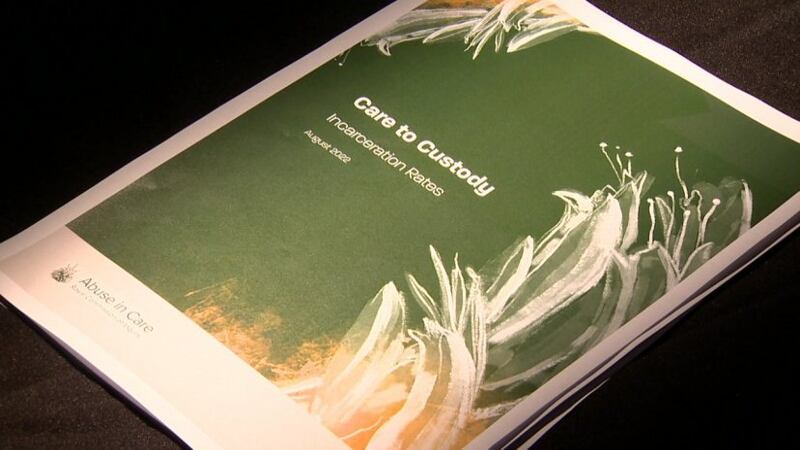Research undertaken as part of the Abuse in Care Royal Commission of Inquiry shows state care last century was a breeding ground for those who went on to serve a prison sentence.
It found that during the 1950s up until 1999, children in state care were five times more likely to end up in jail than those who didn't.
A list of more than 30,000 names and birthdates of people who were in care during this time was provided by Oranga Tamariki. A data match included the Ministry of Health, Department of Corrections and Stats NZ, and the subsequent research found that one in five and, sometimes, as many as one in three of those children and young people who had been in state residential care, went on to serve a criminal custodial sentence later in life.
This is a much higher rate than those who had not been in state care.
Dr Rāwiri Waretini-Karena remembers his first time in jail.
'Clear pipeline'
"Never been there before. But going out into the yard and knowing 80% of the people, and the reason being is before that, I spent 11 years in social welfare homes, family homes, foster homes, and boy's homes and so I knew them all there."
"There is a clear pipeline to prison process that's been going on and has been detrimental for Māori over generations."
Waretini-Karena, who researched the effects of legislation changes for Māori as part of his PhD says, the state's attempts at taking Māori children into state care began before there was even a state.
"Oranga Tamariki and the Department of Social Welfare has their origins in England through the UK House of Commons select committee on Aboriginals. So what happened is when the British empire colonised other nations, they colonised more indigenous nations than any other European power. But what they found is that they couldn't change the mindset of the indigenous peoples that they were engaging in colonising. So they went after the children."
He says he is not interested in the sins of the past but in what can be done today.
"But that is an intervention process. I want to know what prevention looks like because we all seem to be operating after the fact. What are processes that we can put in place so that we never see our tamariki and mokopuna experience life in state care?"

